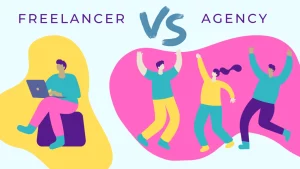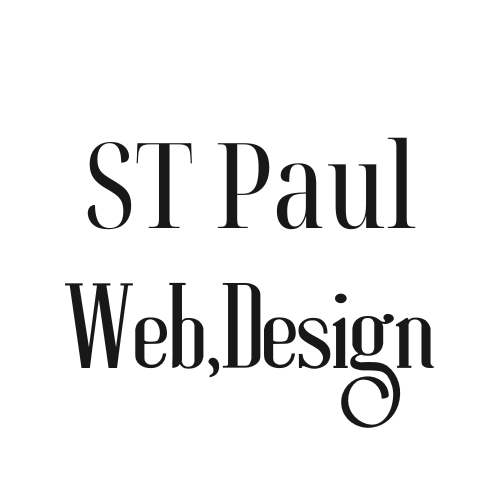Are you tired of the traditional nine-to-five job? Do you dream of setting your own schedule, working from anywhere in the world, and being your own boss? Well, you’re not alone. The rise of freelance work has opened up a whole new world of possibilities for professionals looking to escape the confines of corporate life. But before you take the leap into freelancing, it’s important to consider whether it’s truly the best option for you. In this article, we’ll explore the pros and cons of freelancing versus working for an agency, helping you determine which path is most suited to your skills and aspirations.

Pros And Cons Of Freelancing
- One of the key advantages of freelancing is the flexibility it offers. Freelancers have the freedom to choose their own projects, set their own working hours, and work from anywhere in the world. This level of flexibility allows individuals to balance their personal and professional lives better, ensuring they have time for family, hobbies, and other commitments.
- Another advantage of freelancing is the potential for higher earnings. Freelancers can often charge higher rates for their services compared to agency employees due to factors such as experience and specialization. Additionally, freelancers have more control over negotiating their fees and can directly benefit from any increase in demand for their skills.
However, there are also challenges that come with freelancing. One major downside is the inconsistency in income streams. Unlike agency employees who receive a fixed salary each month, freelancers must constantly find new clients and projects to ensure a continuous flow of income. This can be stressful at times when there’s a lull in business or during periods of economic uncertainty.
Furthermore, as a freelancer you’re responsible for all aspects of your work – from finding clients to handling administrative tasks – which can be overwhelming at times especially if you lack certain skills or resources. Agency work on the other hand provides individuals with an established support system where tasks such as marketing, finance management, and client acquisition are taken care of by the organization.
Pros And Cons Of Working With An Agency
Working with an agency can have several advantages.
- First and foremost, agencies often have a team of professionals who specialize in different areas, providing clients with a diverse range of expertise. This can be particularly beneficial for complex projects that require specialized skills in web design, copywriting, SEO, and more.
- Additionally, agencies usually have access to the latest tools and technologies that freelancers may not always possess.
On the other hand, there are also some drawbacks to consider when working with an agency. One common concern is the lack of personalized attention and communication compared to working directly with a freelancer. Agencies tend to have multiple clients at once, which means that your project may not always receive the dedicated focus it deserves. Furthermore, agencies often come with higher price tags compared to hiring individual freelancers due to their overhead costs.
In conclusion, while working with an agency provides the benefit of accessing a broad range of expertise and resources, it may lack the personal touch and communication that freelancers offer. The decision between working with an agency or hiring a freelancer ultimately depends on factors such as project complexity, budget constraints, and personal preferences in terms of collaboration style. It’s important for businesses to carefully evaluate their specific needs before deciding which approach is best for them.
Factors To Consider In Choosing Freelance Or Agency
When deciding between hiring a freelance professional or an agency, there are several factors that must be carefully considered.
- One aspect to think about is the level of expertise required for your particular project. Freelancers often specialize in specific skills and may have extensive experience in their field, while agencies typically offer a wider range of services with a team of professionals, each with their own specialization.
- Additionally, another crucial factor is the level of communication and collaboration needed throughout the project. Freelancers often work independently and may not provide ongoing updates or seek feedback as frequently as agencies do. On the contrary, agencies are more likely to have established processes for regular communication and project updates.
- Furthermore, budget plays a significant role in this decision-making process. Freelancers tend to charge lower rates compared to agencies that might have overhead costs such as office space and employee benefits. It’s essential to consider your budget constraints along with your expectations for quality and timeliness when making this consideration.
Ultimately, choosing between freelancers and agencies depends on various factors such as the expertise required, communication needs, and budget constraints, among others. By carefully analyzing each factor in relation to your unique project requirements and goals, you can make an informed decision that will best serve your business objectives.
Conclusion:
In conclusion, making the right choice between freelance and agency work ultimately boils down to your personal preferences, goals, and circumstances. Both options have their own unique set of advantages and challenges that can greatly impact your career trajectory.
For those who thrive on flexibility, autonomy, and variety in their work, freelancing can be a great fit. It allows you to choose your own clients, set your rates, and enjoy the freedom of choosing when and where you work. However, it’s important to remember that freelancing also requires strong self-discipline, time management skills, and a willingness to constantly hustle for new projects.
On the other hand, joining an agency brings stability in terms of a steady income stream and access to a network of like-minded professionals. Working collaboratively within an agency setting can provide valuable opportunities for learning from others’ expertise and gaining exposure to larger projects with prestigious clients. However, working within the constraints of an agency hierarchy may limit your decision-making power or require you to follow certain guidelines that might not align with your personal vision.
Ultimately, there is no one-size-fits-all answer when it comes to choosing between freelance or agency work. It’s crucial to carefully assess your skills, aspirations, and risk tolerance level as well as consider external factors such as financial stability or availability of resources before making a decision that aligns with both short-term needs and long-term career goals. Whichever path you choose; embrace it fully while remaining open-minded as opportunities often arise unexpectedly regardless of which route

